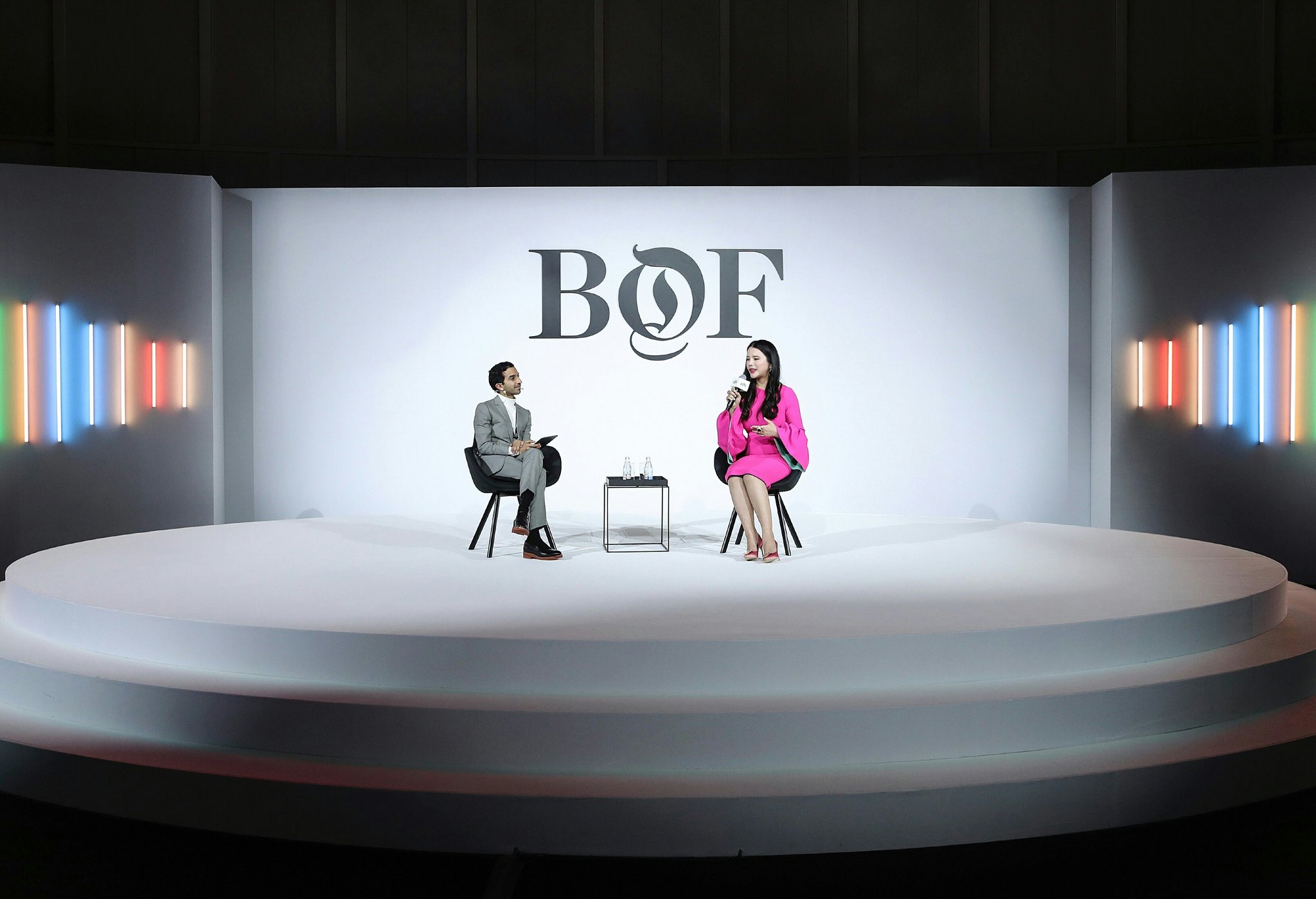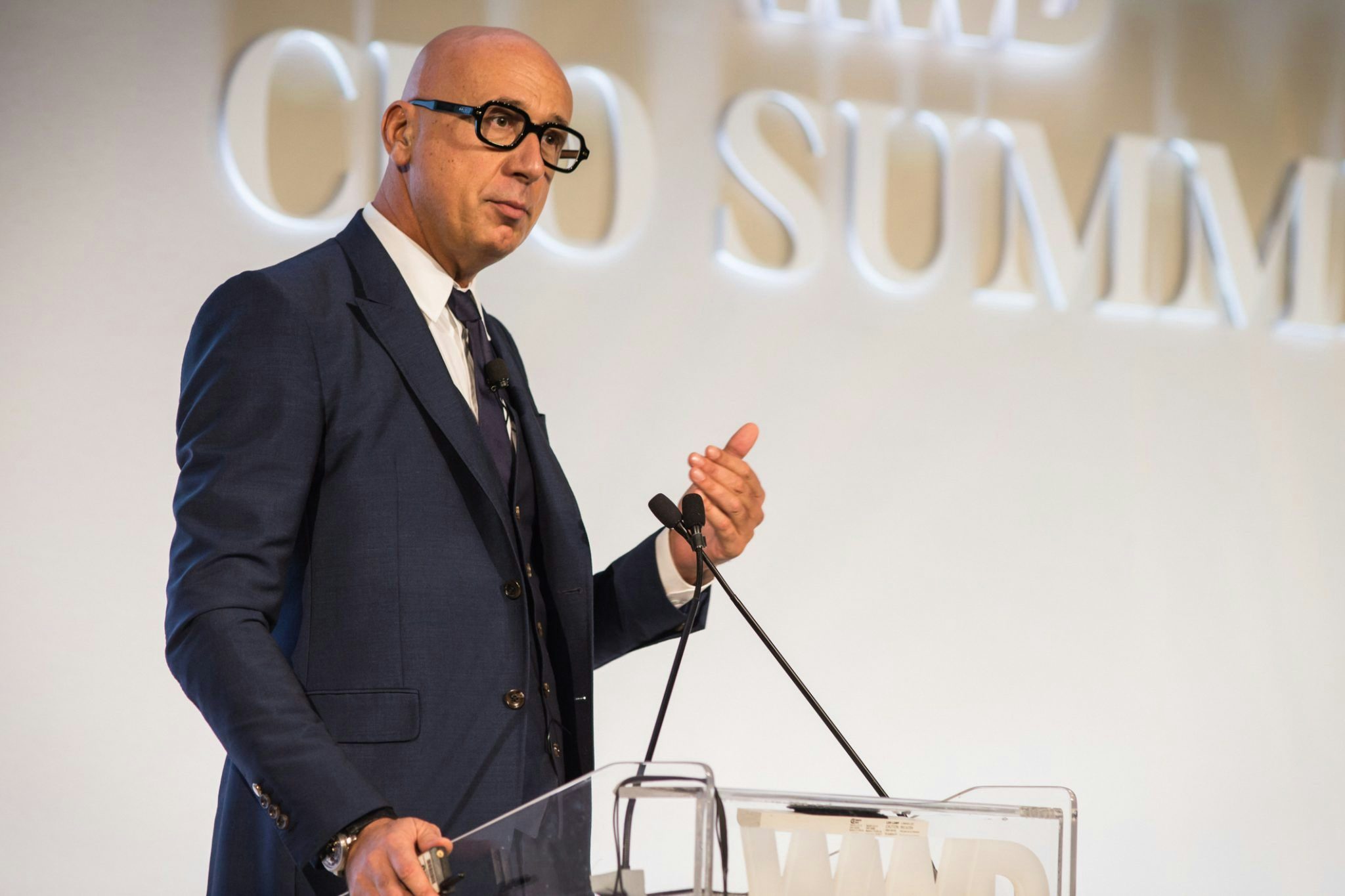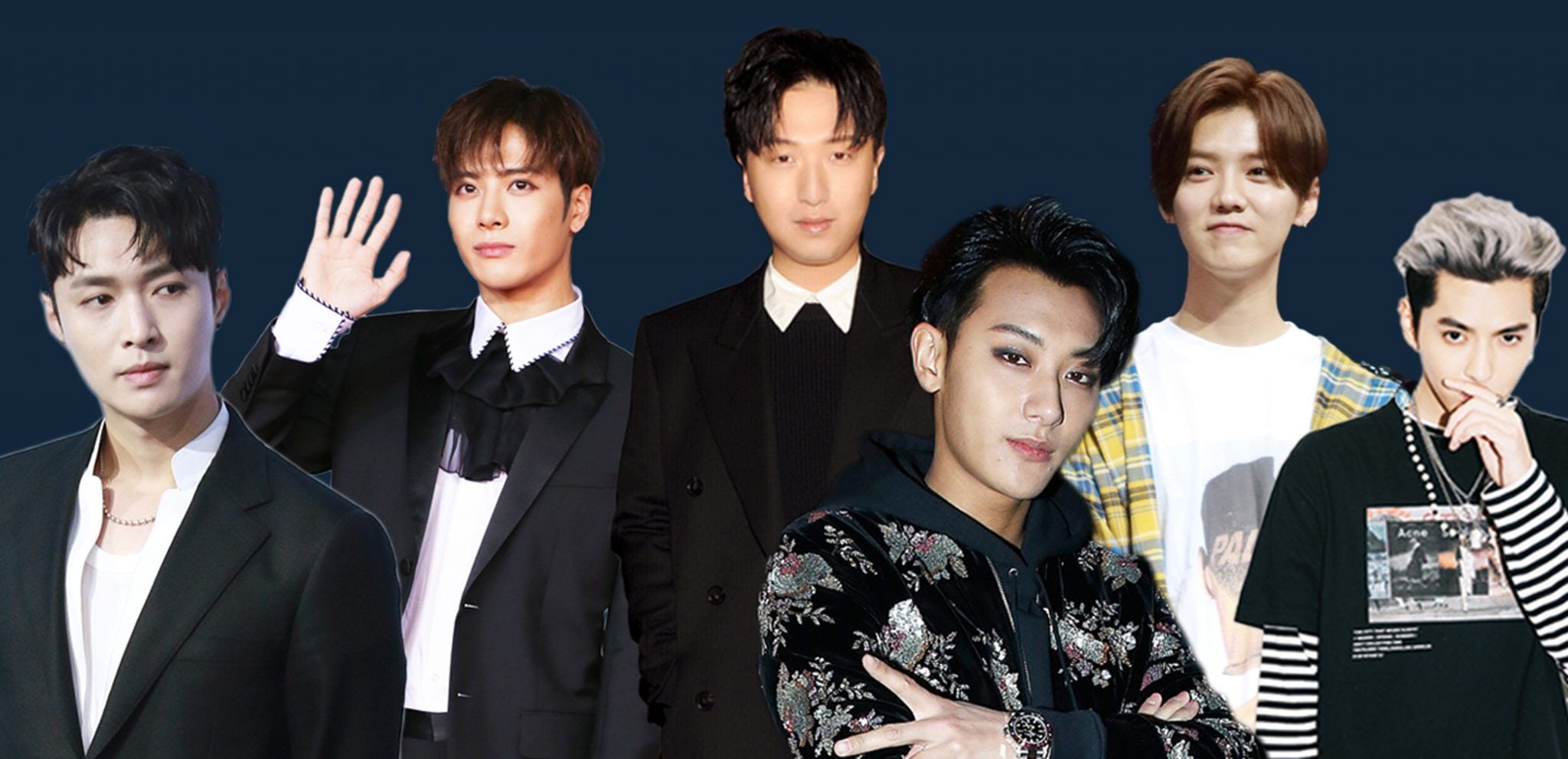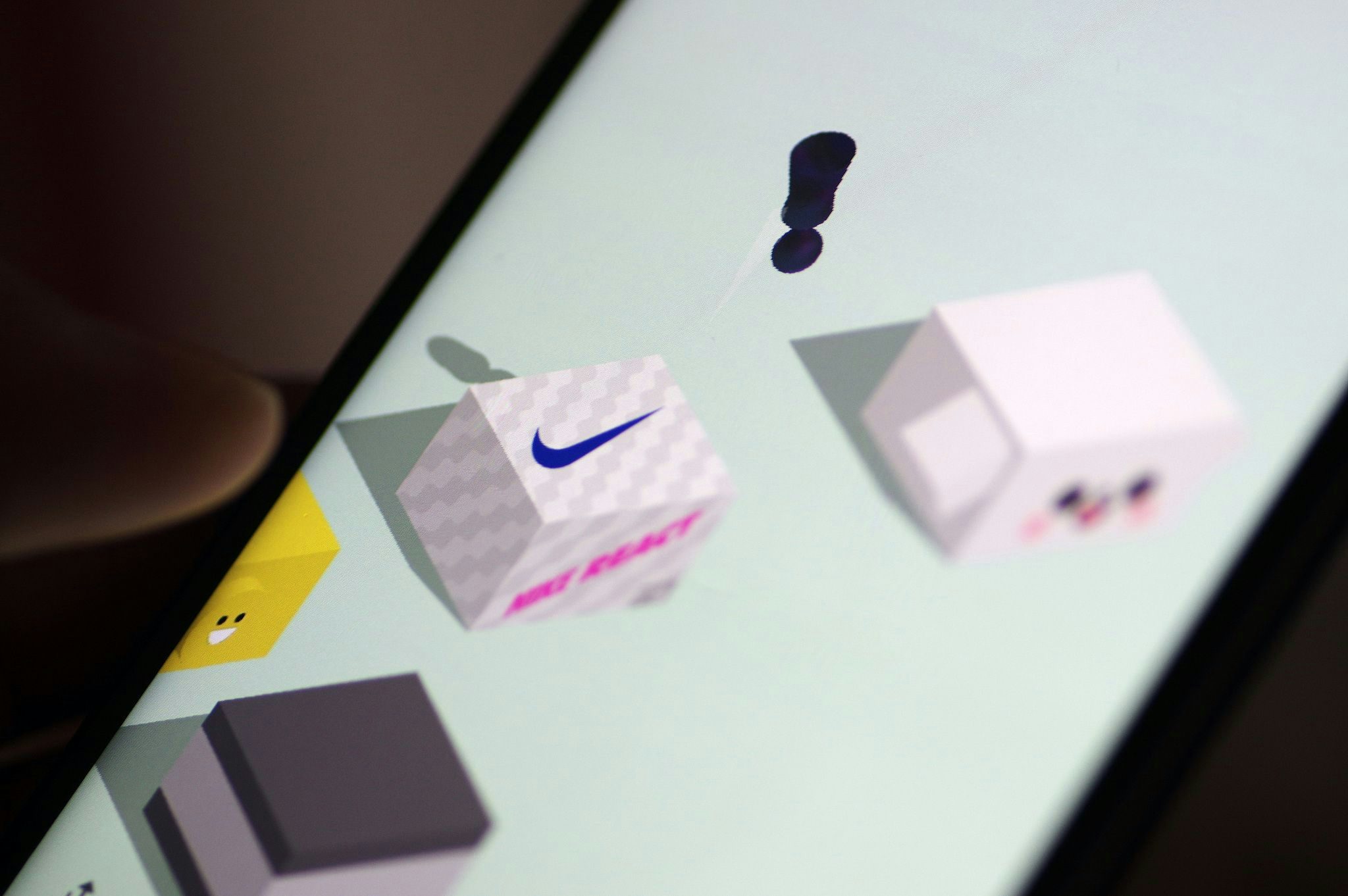No matter how rewarding China’s luxury market has been for international brands, if there’s one thing that’s for certain, it’s that there’s little time for them to rest on their laurels. Shifts in consumer behavior seemingly happen in an instant (Alibaba Group’s President of Tmall Fashion and Luxury Jessica Liu warns it can change direction in as little as six months). So just how do brands manage to keep up?
As the runway shows carried on across town during Shanghai Fashion Week, some of the most influential leaders and experts in luxury gathered on Monday to explore this question and discuss transformations in Chinese consumer shopping habits as well as the other “New Frontiers” facing the global fashion industry.
12 panel discussions—consisting of nearly two dozen speakers from brands and companies like Gucci, Tencent, Alibaba, and Harrods and moderated by a mix of Chinese fashion media stalwarts—examined how to forge ahead in a market whose consumers are exhibiting changing mindsets amidst ever-growing spending power. Below are five takeaways from the panels.
Don’t underestimate the potential of your China talent#
“Steve Jobs said there is no reason to hire talents in the company if you’re going to tell them what to do,” said Gucci’s CEO Marco Bizzarri to moderator and Business of Fashion founder and CEO Imran Amed, explaining just how important it is to listen to his Chinese team. “We interact a lot with the regional team, who brief us at a corporate level on what should be done on certain occasions. For example, during the Chinese New Year, they advise us on wording and images. We develop the content on the corporate level with our structure, and then all the wording is translated so the voice is Chinese-driven.”
It’s not only collaborating on content that’s important when catering your product or brand story to the Chinese market. Harrods Managing Director Michael Ward said they visit China multiple times a year for firsthand research and feedback.
Brick-and-mortar stores should feel inclusive#
Gone is the old world of stuffy and stiff luxury service. As offline experiences become more and more crucial in an increasingly digital-focused and mobile-first industry, salespeople and visual merchandisers have to redefine what "exclusive" means and embrace the values of modern, 20-something Chinese consumers.
“You get exclusivity through products, but the differentiating factor is this inclusivity factor,” said Bizzarri. “The inclusivity factor is feeling at home—so having an experience, touching the product.” He continued by saying that it’s this inclusivity and personal touch that will, in fact, differentiate luxury brands in an increasingly digital world.
“Overall 65 percent of customers... they research online and they buy offline,” he said. “The spirit in the shop becomes key in the sense that if you're able to pursue the same values that you have as a company, the values of joy and happiness, then you can provide a real welcome—being passionate and genuinely curious about the customer that is in front of you, creating no distance in the shadow—which was typical of the previous way of thinking about luxury.”
“Do what feels right” with celebrity collabs#
Celebrity collaborations aren’t always the easiest decisions to make, as a partnership could easily fail to hit the right cultural notes with sophisticated Chinese consumers. But despite what audiences might have expected, it was a no-brainer for the 134-year-old high jewelry brand Bulgari to choose 20-something hip-hop star Kris Wu as their brand ambassador, according to Brand Communications Director at Bulgari Greater China, Joyce Weng. She explained to Business of Fashion’s Asia correspondent and moderator, Casey Hall, that Kris Wu’s values as a philanthropist and his deep connection with the aspirational younger generation really mirrored Bulgari’s brand image.
“Sometimes the consumer doesn’t know what they want until they see it,” said Chief Strategy Officer for L’Atelier Asia Pacific, Lyndon Morant, who works with LVHM’s marketing teams in China. “I would be quite cautious of worrying too much about how a consumer is going to react….it’s our job to do what feels right sometimes.”
Online is (still) the future#
This may seem like an obvious takeaway, but Tencent Online Media Group’s Director of Consumer Goods, Shi Saifei, and Alibaba Group’s President of Tmall Fashion and Luxury, Jessica Liu, were there to emphasize just how big a difference digital is making. While the amount of online luxury shoppers this year is still relatively small compared to in-store shoppers, Liu said Tmall expects this to change quickly, especially as more luxury brands take advantage of Alibaba’s data system to better understand their online consumers. In one to two years, Liu predicted, they expect the amount of luxury ready-to-wear shoppers to trend upward. On WeChat, mini-programs are making it easier for consumers to make instant purchases after making emotional connections with digital content, while searches for luxury fashion online will continue to grow over the next five years, Saifei said.
It’s all about the youth—but don’t forget their parents#
Bizzarri’s input said it all, noting that millennial consumers are more loyal and spend more on average than older generations. But as brands work to adapt their traditional values to a new generation of Chinese shoppers, they can’t sidestep Gen Xers.
As they work on expanding their menswear department, Harrods is focusing on creating an environment that will appeal to all categories of shoppers while still adhering to their strong brand values. That’s because they want to “take that traditional shopper—which we shouldn’t lose because they’re still an important cash generator for us—and bond that with the younger millennial customer to make sure we’re hitting all of the buttons for our menswear shoppers who just want absolute luxury and beautiful curation,” Bizzarri said.
This balance might be easier to find than one might think. “For the first time we’re seeing mother and daughter shopping in the same rows,” said Ward. “It used to be ‘mother’s doing it, and I’m not touching it.’”



